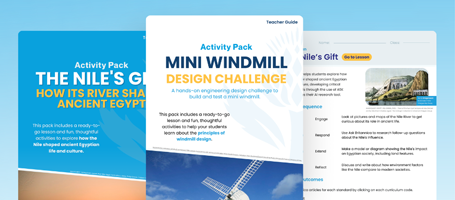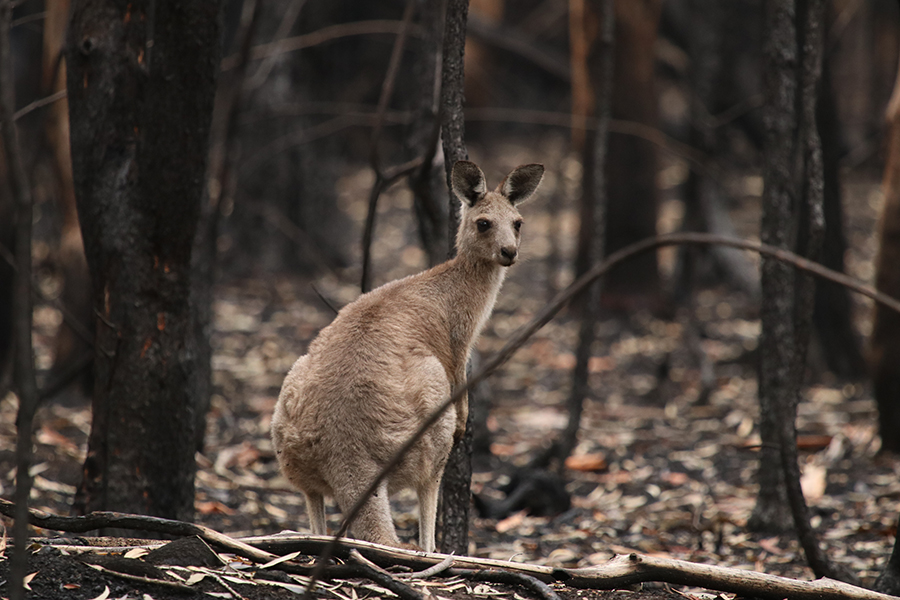Due to its hot and dry climate, Australia is the most fire-prone country on Earth. Bushfires are frequent occurrences and often result in extensive damage to wildlife, vegetation and property.
The catastrophic 2019-2020 fire season took a heartbreaking toll on native flora and fauna. The fires burned through more than 27 million acres (11 million hectares) of land – an area that’s almost the size of England – and an estimated one billion animals were believed to have died. The disaster reignited an urgent call for preventative action and critical change.
For educators in Australia and around the world, bushfire disasters nevertheless present a teaching moment to educate future generations about the impact of bushfires on wildlife and the importance of conservation.
Primary/Elementary School
Use this Britannica School (Australia) Primary Level Resource Pack ↗ to help you explore the impact of bushfires. It contains articles and multimedia.
Teacher Tip:
Schools in New Zealand and Asia can also access this resource pack at:
Britannica School (New Zealand) Primary level resource pack ↗
Britannica School (Asia) Elementary level resource pack ↗
Activity
- Read the Wildland Fire article and complete the Observation-Inferences worksheet identifying observations about bushfires and how they start. Then make inferences about the impact and effects of bushfires.
- Examine how the Aboriginal people understand the importance of fire as a form of land management and how they use it to their benefit. Use the Cause and Effect worksheet to record your ideas.
- Compare a bushfire disaster e.g. Australian bushfires to another disaster e.g. floods using the Venn Diagram.
Middle School
Use this Britannica School (Australia) Middle Level Resource Pack ↗ to help you with the following activities. It contains articles and multimedia to explore the effects of bushfires on flora and fauna.
Teacher Tip:
Schools in New Zealand and Asia can also access this resource pack at:
Britannica School (New Zealand) Middle level resource pack ↗
Britannica School (Asia) Middle level resource pack ↗
Activity
- Identify and discuss different types of habitats that fauna need in the forest environment. Use the Animal Research worksheet to examine one specific type of Australian fauna that inhabits a forest.
- Read the article about wild fires and their effects. Consider the following questions:
- What are the immediate effects a bushfire would have on the fauna?
- Where would/could fauna go during and immediately after a fire?
- What types of food would be available for the fauna after a fire?
- What competition might there be for food and shelter from other fauna?
- What effects might there be on the fauna’s populations/social make-up?
- Which types of fauna may actually benefit from a fire?
- Complete the worksheet After the Fire in relation to your researched fauna from step 1.
Featured Image from Shutterstock: ILUKA, NSW / AUSTRALIA – NOVEMBER 29, 2020: KANGAROOS AFTER A BUSHFIRE. Photo by Anna LoFi
These activities and resources have been created using content from Britannica School, the go-to site for safe, comprehensive student research. Contact your librarian to find out if your institution already has access. Find out more about Britannica School or set up your own free trial.
More Educator Resources
Sign up with your email for more free resources from Britannica.

